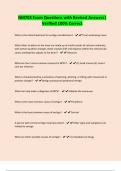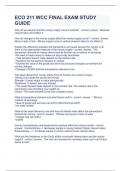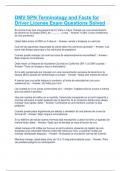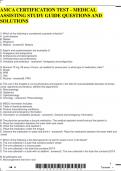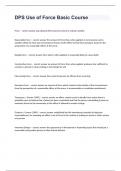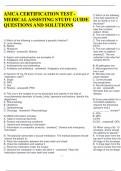08.04.2020
International Relations: Globalization and Regionalization
– Prof. Dr. Jürgen Rüland (Wed. 12-14.00)
Course Information and ECTS (7 ECTS):
- Written exam: 10. July 2019 12-14h; HS 1098, KG 1
o 10 questions (answer 8 of them, some are multiple choice)
o Written essay (2-3 pages)
- tutorial paper (2 pages)
Password: GSP19
1. What is Globalization?
“Globalization is the compression of time and space” (Roland Robertson, 1993)
Perspectives:
- Economic perspective (welfare, growth, liberal dimensions) Optimistic view,
globalization = welfare enhancing, expansion of markets
- Sociological perspective (politics, society, culture)
2. Drivers of Globalization
The economic concept of globalization, indicators:
- Trade of goods, foreign direct investments (FDI), capital flows, fusion of transnational
corporations
The Washington consensus (1)
Recommendations:
- fiscal policy discipline
- redirection of public spending from indiscriminate (and often regressive) subsidies
towards broad-based provision of key-growth, pro-poor services like education,
health and infrastructure investment
- Market-determined (albeit moderate) interest rates
- Tax reform
Cont’d
- Competitive exchange rates
- Trade liberalizations
- Liberalization of inward foreign direct investment
- Privatization of state enterprises
1
, 08.04.2020
- Deregulation – i.e. abolition of regulations that impede market entry or restrict
competition
- Legal security for property rights
Sociological perspective
- More skeptical view
- Globalization has also negative repercussions
- Intensification of transnational interactions
- Looking beyond economics – political, social, cultural, biographical dimensions of
globalization
- Diffusion of ideas, norms, concepts, policies
The Globalization Critique of Hirst/ Thompson
- Globalization argument is empirically contingent
- Lack of historical depth
- The world economy is far from being global
- TNCs (= transnational corporations) are no “stateless corporations”, still closely
linked to their home economies
Alternative Concepts to Globalization
Internationalization, De-nationalization, De-territorialization
Drivers of Globalization
Causes/ Triggers of Globalization
- Catalytic role of technological changes
- Collapse of the Bretton Woods Monetary System; instable currency exchange rates;
invention of new financial instruments (swaps, future, options, etc.)
- Oil crisis; recycling of petro dollars (impact for developing countries; oil magnets
invest into developing countries to increase their influence)
- Neoliberal development strategies in third world countries; from import substation
to export-orientation (Washington Consensus)
2
, 08.04.2020
- GATT/WTO trade liberalization rounds
- New international division of labour; trade expansion, intensification of FDI; more
liberal financial regimes
- Collapse of Eastern bloc, transformation of former socialist economies
3. Consequences of Globalization
Globalization and the democracy deficit
- Political and social space are no longer congruent (= in harmony)
- growing distance to elected representatives
- executive dominance
- governments decide without previous public debate
Cont’d
- lack of transparence, lack of accountability, lack of oversight structures in
international organizations;
- weak or non-existent parliamentarization of international organizations
- Pillared structure of international organization
- Increasing populism
Pillarization of International Organizations
Decline of the Welfare State?
- Globalization = Triumph of the market? Scramble for the locations with the greatest
rate of return
- High capital mobility, much lesser mobility of labor
- Impoverishment and displacement of socially weak and low-skilled segments of the
population (“race to the bottom”)
Decline of the Nation State?
- The nation state is unable to steer and manage the economy
3
, 08.04.2020
- Government is replaced by governance and a multi-layered, network-like, multi-
stakeholder system of global governance
- The free flow of communication and information undermines the nation state
- Change in international law intrude the nation state
- The nation state is challenged from below
Resilience of the Nation State?
- There is a revitalization of nationalism after the end of the Cold War (populism)
- The nation state ensures the rule of law in a turbulent world
- Nation states create international norms and rules
- The impact of the international economy is exaggerated
- The state still controls the people
- Supranationalism does not replace the state
Government vs. Governance & Global Governance
Global Governance
4
International Relations: Globalization and Regionalization
– Prof. Dr. Jürgen Rüland (Wed. 12-14.00)
Course Information and ECTS (7 ECTS):
- Written exam: 10. July 2019 12-14h; HS 1098, KG 1
o 10 questions (answer 8 of them, some are multiple choice)
o Written essay (2-3 pages)
- tutorial paper (2 pages)
Password: GSP19
1. What is Globalization?
“Globalization is the compression of time and space” (Roland Robertson, 1993)
Perspectives:
- Economic perspective (welfare, growth, liberal dimensions) Optimistic view,
globalization = welfare enhancing, expansion of markets
- Sociological perspective (politics, society, culture)
2. Drivers of Globalization
The economic concept of globalization, indicators:
- Trade of goods, foreign direct investments (FDI), capital flows, fusion of transnational
corporations
The Washington consensus (1)
Recommendations:
- fiscal policy discipline
- redirection of public spending from indiscriminate (and often regressive) subsidies
towards broad-based provision of key-growth, pro-poor services like education,
health and infrastructure investment
- Market-determined (albeit moderate) interest rates
- Tax reform
Cont’d
- Competitive exchange rates
- Trade liberalizations
- Liberalization of inward foreign direct investment
- Privatization of state enterprises
1
, 08.04.2020
- Deregulation – i.e. abolition of regulations that impede market entry or restrict
competition
- Legal security for property rights
Sociological perspective
- More skeptical view
- Globalization has also negative repercussions
- Intensification of transnational interactions
- Looking beyond economics – political, social, cultural, biographical dimensions of
globalization
- Diffusion of ideas, norms, concepts, policies
The Globalization Critique of Hirst/ Thompson
- Globalization argument is empirically contingent
- Lack of historical depth
- The world economy is far from being global
- TNCs (= transnational corporations) are no “stateless corporations”, still closely
linked to their home economies
Alternative Concepts to Globalization
Internationalization, De-nationalization, De-territorialization
Drivers of Globalization
Causes/ Triggers of Globalization
- Catalytic role of technological changes
- Collapse of the Bretton Woods Monetary System; instable currency exchange rates;
invention of new financial instruments (swaps, future, options, etc.)
- Oil crisis; recycling of petro dollars (impact for developing countries; oil magnets
invest into developing countries to increase their influence)
- Neoliberal development strategies in third world countries; from import substation
to export-orientation (Washington Consensus)
2
, 08.04.2020
- GATT/WTO trade liberalization rounds
- New international division of labour; trade expansion, intensification of FDI; more
liberal financial regimes
- Collapse of Eastern bloc, transformation of former socialist economies
3. Consequences of Globalization
Globalization and the democracy deficit
- Political and social space are no longer congruent (= in harmony)
- growing distance to elected representatives
- executive dominance
- governments decide without previous public debate
Cont’d
- lack of transparence, lack of accountability, lack of oversight structures in
international organizations;
- weak or non-existent parliamentarization of international organizations
- Pillared structure of international organization
- Increasing populism
Pillarization of International Organizations
Decline of the Welfare State?
- Globalization = Triumph of the market? Scramble for the locations with the greatest
rate of return
- High capital mobility, much lesser mobility of labor
- Impoverishment and displacement of socially weak and low-skilled segments of the
population (“race to the bottom”)
Decline of the Nation State?
- The nation state is unable to steer and manage the economy
3
, 08.04.2020
- Government is replaced by governance and a multi-layered, network-like, multi-
stakeholder system of global governance
- The free flow of communication and information undermines the nation state
- Change in international law intrude the nation state
- The nation state is challenged from below
Resilience of the Nation State?
- There is a revitalization of nationalism after the end of the Cold War (populism)
- The nation state ensures the rule of law in a turbulent world
- Nation states create international norms and rules
- The impact of the international economy is exaggerated
- The state still controls the people
- Supranationalism does not replace the state
Government vs. Governance & Global Governance
Global Governance
4



